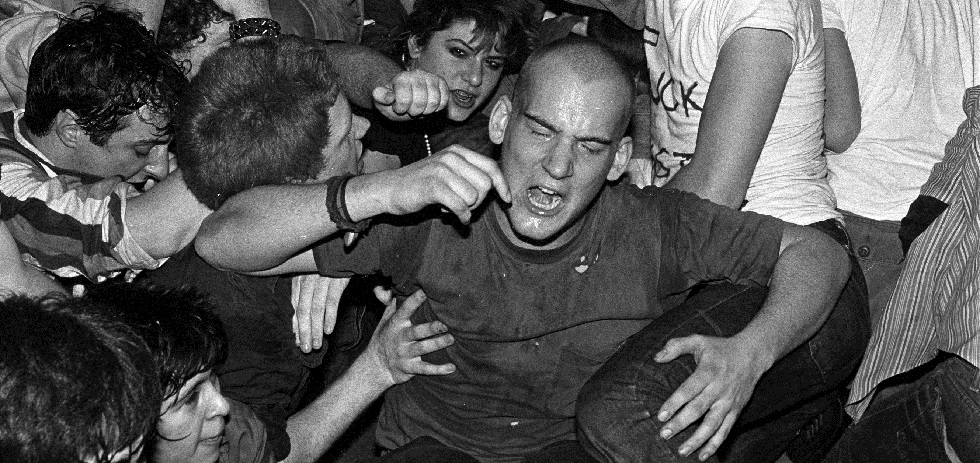Scott Crawford’s impassioned exploration of the birth of the D.C. Punk scene Salad Days is a sprawling tale of the birth of a counter-cultural movement in the early ’80s, in the capital of the United States. While somewhat suffering from a sort-of Kickstarter documentary syndrome formally, the film conveys a fascinating narrative and is elevated by some fantastic rare-footage and material, amazing interviews, and a wide focus that doesn’t shy away from exploring scene politics and some of the more negative aspects of the movement, despite (somewhat) rose tinted glasses.
Assembled from a cavalcade of talking heads footage shot over the past few years by Crawford, featuring a wide array of artists including Henry Rollins (Black Flag, Rollins Band), Dave Grohl (Scream), John Stabb (Government Issue), Jeff Nelson (Minor Threat), HR (Bad Brains), Mary Timony (Helium), Kenny Inouye (Marginal Man), Monica Richards (Strange Boutique), and even Fred Armisen of Portlandia, Salad Days takes an empassioned look at DC’s wonder-years, chronicalling the rise and fall of numerous punk offshoots from their humble roots in abandoned buildings and run-down warehouses to their explosion onto the mainstream, covering every footnote possible over a sprawling 100 minute runtime. Crawford takes a somewhat objective look at the scene, although he never excises himself from the story, rooting most of his exposition in seminal influential figure Ian MacKaye, the head of Dischord records and founder of Minor Threat and Fugazi, among others. By taking this approach, Crawford feigns a much needed objectivity that permeates his picture even though his personal tale as a fan is clearly conveyed in the discussion of his publication Metrozine in some of the films earlier moments, and he feels ever present throughout the film.
Perhaps most impressively, Crawford manages to move beyond a constricted analysis of the period that focuses solely on caucasian males – the stereotypical group associated with the Punk movement. While the documentary isn’t some intersectional masterpiece, there has been a strong effort to move beyond a more traditional wheelhouse that includes exclusively white dudes who pat each other on the back and talk about how great they are for hours on end. Also of note is the way in which Crawford calls out the racism and misogyny that permeated the D.C. scene through his selection of interview footage. In saying that, the documentary shies away from much of the violence that also became ingrained in the scene (and saw a backlash from artists) – that’s not to say that it isn’t mentioned here, just that it was just underplayed.
It’s a great addition to the wide array of punk history related material that has been entering the zeitgeist of late,1 a strong catch-all introduction to the world of D.C. punk, and all around a solid effort from Crawford who clearly has a wealth of knowledge and connections to contribute to the ongoing documentation of the extensive and multi-faceted punk and hardcore subculture. It would be interesting to see if Crawford will continue his work in the realm of documentary and in the archiving of history as he seems to occupy a unique, youthful vantage point in his experience of the movement that caused him to devour all he could about the subculture. Turning the flair he demonstrates here onto the documentation of a specific record label or a specific band could see another solid documentary exploring the fringe moment that has such a rich and vibrant counter-cultural history and offers an interesting mirror to the political climate of particular eras.
All in all, Salad Days is a worthwhile endeavour; a rare kickstarted documentary that is as strong (if not stronger) than its privately funded counterparts and an important historical document from an individual that was actually there in the thick of it all. While it’s not without its problems and is occasionally both too narrow and too broad in scope, Crawford has delivered a winner that is sure to find its place in the back catalogue of punk history.

